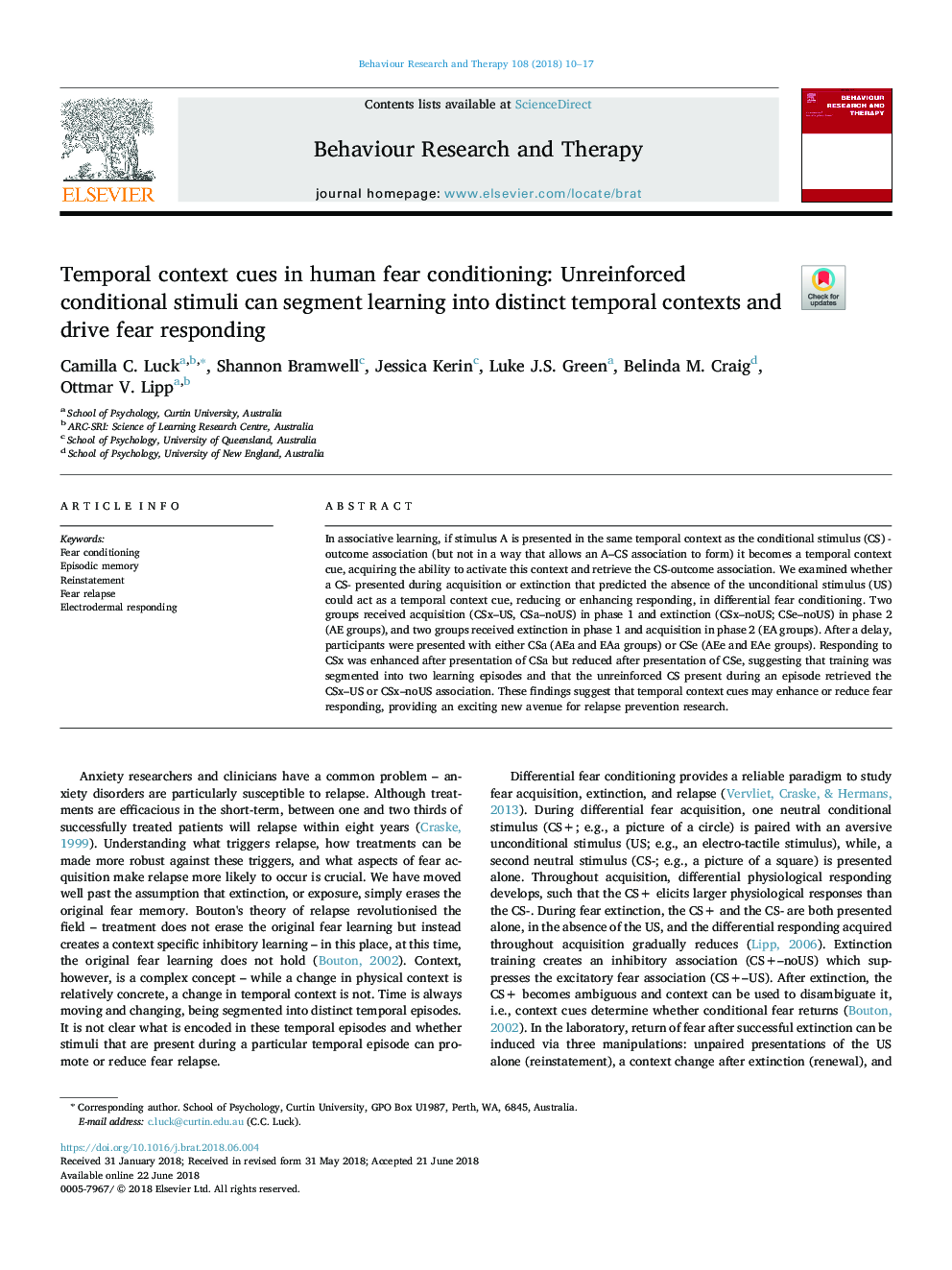| Article ID | Journal | Published Year | Pages | File Type |
|---|---|---|---|---|
| 7261719 | Behaviour Research and Therapy | 2018 | 8 Pages |
Abstract
In associative learning, if stimulus A is presented in the same temporal context as the conditional stimulus (CS) - outcome association (but not in a way that allows an A-CS association to form) it becomes a temporal context cue, acquiring the ability to activate this context and retrieve the CS-outcome association. We examined whether a CS- presented during acquisition or extinction that predicted the absence of the unconditional stimulus (US) could act as a temporal context cue, reducing or enhancing responding, in differential fear conditioning. Two groups received acquisition (CSx-US, CSa-noUS) in phase 1 and extinction (CSx-noUS; CSe-noUS) in phase 2 (AE groups), and two groups received extinction in phase 1 and acquisition in phase 2 (EA groups). After a delay, participants were presented with either CSa (AEa and EAa groups) or CSe (AEe and EAe groups). Responding to CSx was enhanced after presentation of CSa but reduced after presentation of CSe, suggesting that training was segmented into two learning episodes and that the unreinforced CS present during an episode retrieved the CSx-US or CSx-noUS association. These findings suggest that temporal context cues may enhance or reduce fear responding, providing an exciting new avenue for relapse prevention research.
Related Topics
Health Sciences
Medicine and Dentistry
Psychiatry and Mental Health
Authors
Camilla C. Luck, Shannon Bramwell, Jessica Kerin, Luke J.S. Green, Belinda M. Craig, Ottmar V. Lipp,
